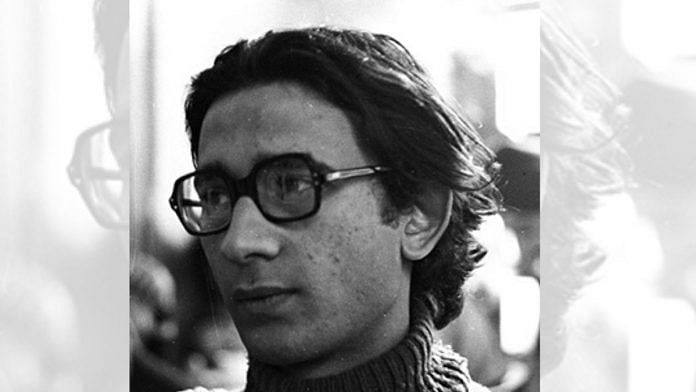New Delhi: On 1 January 1989, as the world was celebrating the new year, a man and his theatre group, Jana Natya Manch (JANAM), were headed to Jhandapur, a village in Uttar Pradesh, to perform their street play Halla Bol to support workers’ demands led by the Centre of Indian Trade Unions. Some men believed to be associated with the Congress attacked the group during the show.
The man — theatre actor and activist Safdar Hashmi, then 34 — was also performing. He tried to reason with the men, but to no avail. Hashmi died of his injuries the next day.
Two days later, led by his widow Moloyashree, JANAM went back to Jhandapur and completed the performance of the play as a defiant tribute to the man who worked tirelessly to bring theatre to the masses. Hundreds gathered in solidarity at the scene of the violence in Jhandapur, and Hashmi’s killing led to widespread protests.
On his 31st death anniversary, ThePrint examines Hashmi’s contribution to the fight for civil liberties, a fight that is continuing in 2019.
Making theatre accessible
Born and raised in a Marxist environment, Hashmi grew up in Aligarh and later, Delhi. While studying English literature at Delhi University, he was associated with the Student’s Federation of India (SFI). He was also a member of the Indian People’s Theatre Association (IPTA) and worked on a number of plays when he was a student.
In 1973, as a 19-year-old, Hashmi founded the Jana Natya Manch with other amateur theatre practitioners whose goal was to take theatre to the masses. Later in the 1970s, he also taught at various universities, including DU and in Garhwal and Kashmir. He also served as a Press Information Officer at the West Bengal Information Centre at New Delhi before quitting it to become a full-time theatre activist in 1983.
JANAM performed many plays under Hashmi’s leadership — Gaon Se Shahar Tak, Hatyare & Apharan Bhaichare Ke, Teen Crore, Aurat and DTC ki Dhandhli. The group continues to operate after Hashmi’s death and also set up Studio Safdar in April 2012, a space to perform and hold workshops.
Also read: Harsh Mander — ‘bleeding-heart liberal’ who’s fighting Modi govt with Gandhi’s ‘radical love’
A symbol of protest
Hashmi’s death shook India’s conscience and many from the world the arts as well as outside it condemned the brutal attack. A week after his death, actor Shabana Azmi, speaking at the 12th International Film Festival of India, accused the Congress of killing Hashmi.
The Safdar Hashmi Memorial Trust (SAHMAT) was set up in 1989 to promote freedom of expression and creativity in the arts. Every year on New Year’s Day, SAHMAT organises a day-long memorial, with music, dance and theatre, in Delhi, while street theatre is performed at Jhandapur.
At a time when India is reeling under the questions of citizenship, police brutality on people protesting the Citizenship Amendment Act and internet shutdowns, one is reminded of a poem, dedicated to Hashmi, by filmmaker Anand Patwardhan:
safdar (12 April 1954 — 2 January 1989)
so you missed the demolition of the babri masjid
and the violence and hate that followed
you missed ramabai and other dalit massacres
you missed your nation’s love for the atom bomb
in 2002 you missed the Gujarat pogrom
and in neighbouring Pakistan you missed
the creation of the Taliban and here
this year you missed the coronation of killers
we who survived you missed none of these
we missed you.
Also read: Chandrashekhar Azad writes from Tihar: Every police bullet is aimed at the Constitution




Congress since independence has seen Socialists and Communists as enemy fully ignoring religious fundamentalists….. This poisonous tree of religious fundamentalism was grown by congress by its own hands now whole country is suffering with all maladies be it Economy, Low scientific temper, Social dis harmony, Poverty, economic inequality, poverty.